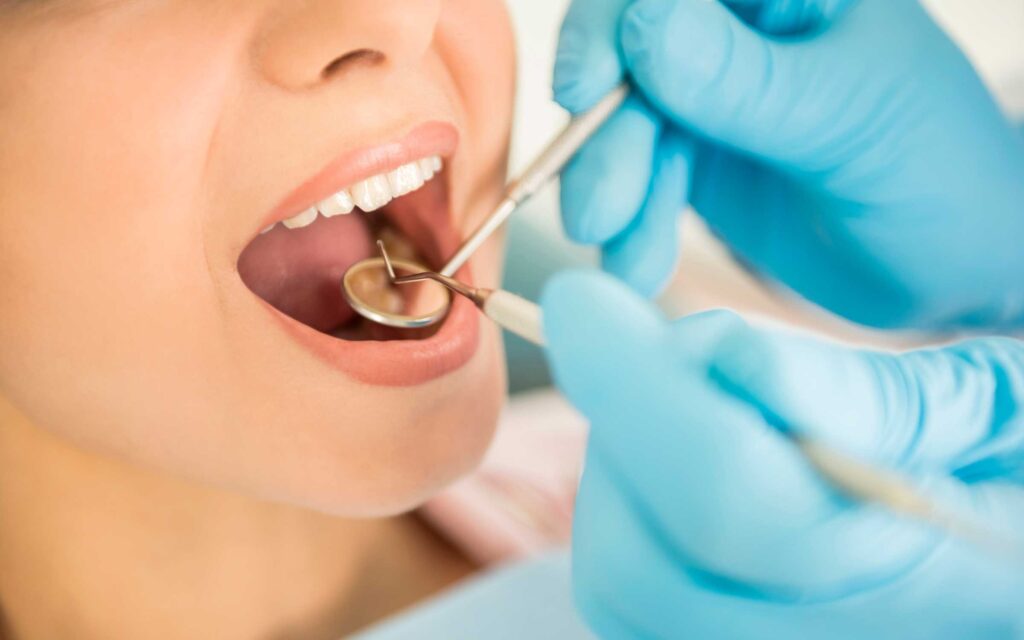What Is the Treatment for Gum Disease? How to Stop It Early
Gum disease, also known as periodontal disease, is a common oral health problem that affects millions of people worldwide. It can start with mild symptoms such as gum redness and swelling but can lead to serious complications if left untreated, including tooth loss.
But what exactly is the treatment for gum disease, and how can you stop it early? In this blog, we will provide an in-depth look at gum disease, its stages, the available treatments, and how you can take proactive steps to prevent it from becoming a severe issue.
Key Takeaways
- Gum disease starts with gingivitis, which is reversible with proper oral care.
- If left untreated, gum disease can progress to periodontitis, leading to tooth loss.
- Early treatment is crucial and may involve professional cleaning, scaling, root planing, and in severe cases, surgery.
- Maintaining good oral hygiene, avoiding smoking, and visiting the dentist regularly are key to preventing gum disease.
Gingivitis Treatment: The First Line of Defense
Gingivitis is the earliest stage of gum disease, and fortunately, it is completely reversible with good oral hygiene. Regular brushing and flossing are essential, and professional cleaning by your dentist can remove the plaque and tartar buildup that contribute to gingivitis.
During a dental check-up, your dentist or hygienist will perform scaling, which is the removal of plaque from the teeth’s surface and below the gum line. By catching gingivitis early, you can prevent it from progressing into more severe stages of gum disease.

Periodontitis Treatment: Advanced Care
When gum disease progresses to periodontitis, the infection spreads deeper into the tissues and bone supporting your teeth. Treatment often requires more intensive measures, starting with a non-surgical procedure called scaling and root planing, where the dentist removes plaque from below the gum line and smooths the tooth roots to help the gums reattach.
In some cases, antibiotics are prescribed to control the infection. For severe cases with significant damage, surgical options like flap surgery may be needed to remove deep tartar deposits and regenerate lost bone.

Preventing Gum Disease
The best treatment for gum disease is prevention. Proper oral hygiene and regular dental visits play a pivotal role in avoiding it. This includes brushing your teeth at least twice a day with fluoride toothpaste, flossing daily to remove plaque from between teeth, and visiting your dentist at least twice a year for professional cleanings.
Furthermore, lifestyle choices matter. Smoking is a major risk factor for gum disease, so quitting can significantly lower your risk and improve your overall oral health.

The Role of Diet in Gum Health
A balanced diet rich in vitamins and minerals, especially Vitamin C and calcium, can help strengthen your gums and teeth. Avoid sugary foods and drinks, as they encourage plaque buildup and bacteria growth. Instead, focus on a diet that supports your immune system and overall oral health, which is a key part of your defense against gum disease.
Take the First Step Towards Healthy Gums
Visit Leslie Carpenter DDS in Pasadena
If you’re wondering what the treatment for gum disease is or suspect you may have it, don’t wait for it to worsen. With our expertise and personalized care, we are committed to ensuring your oral health is maintained at its best. Visit us at 133 S Hudson Ave, Pasadena, CA 91101.
Frequently Asked Questions
How can I tell if I have gum disease?
Common signs of gum disease include red, swollen, or bleeding gums, bad breath, and receding gums. If you experience these symptoms, it’s important to see a dentist for an evaluation.
Can gum disease be cured?
Gum disease can be treated and managed, especially if caught early. Gingivitis can be fully reversed with proper care, while periodontitis can be controlled with professional treatment and good oral hygiene.
How long does gum disease treatment take?
The duration of treatment depends on the severity of the gum disease. Gingivitis can be treated within a few weeks, while periodontitis may require multiple visits for scaling, root planing, and possibly surgery.
Is it too late to treat gum disease once it’s advanced?
It’s never too late to seek treatment for gum disease. While advanced stages may require more intensive procedures, timely treatment can help prevent further damage and preserve your teeth.
Protect Your Smile for the Future
Gum disease is a serious condition that can affect not only your oral health but your overall well-being. Early detection and treatment are key to stopping the disease before it becomes severe. If you notice any symptoms or suspect that you may have gum disease, don’t delay seeking professional help. At Leslie Carpenter DDS, we specialize in treating gum disease and helping you maintain healthy gums and teeth.

